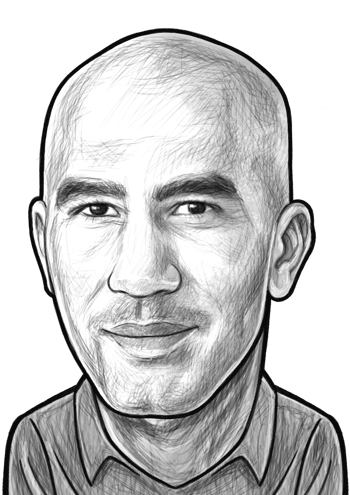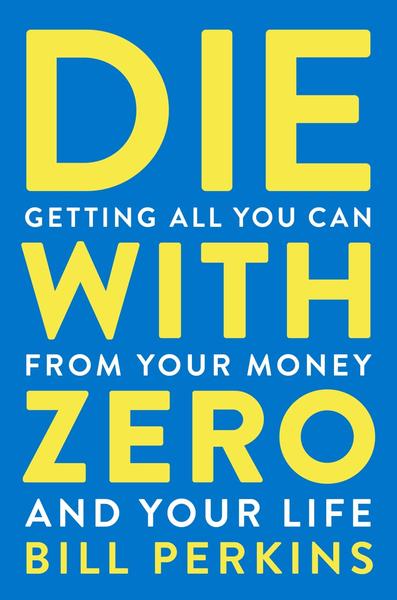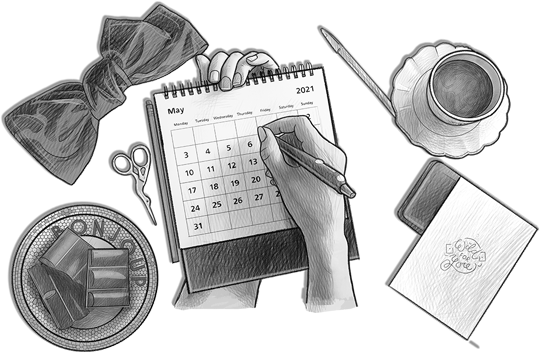Die With Zero

Hi, The Investor’s Podcast Network Community!
🏀 The basketball star Giannis Antetokounmpo suffered a tough season-ending loss this week, then offered a bit of perspective.
“There’s no failure in sports,” he said in an interview that has gone viral. “There’s good days, bad days. Some days you are able to be successful, some days you’re not. Some days it’s your turn, some days it’s not your turn.”
His point: keep going. Kudos to Giannis for giving everyone the reminder. Whether it’s markets, investing, life, or a basketball season, the journey is where the real rewards lie 🙏
Below, we bring you a somewhat related piece on moving forward in life with the big picture in mind, courtesy of hedge fund manager Bill Perkins.
All this, and more, in just 5 minutes to read.
–Matthew
Get smarter about valuing businesses in just a few minutes each week.
Get the weekly email that makes understanding intrinsic value
easy and enjoyable, for free.
Simple setup for new Bitcoiners ✅
Advanced features for Bitcoin veterans ✅
The Bitcoin wallet for your every need ✅
Blockstream Jade is the only hardware wallet designed for your whole Bitcoin journey. Visit store.blockstream.com and use coupon code: ‘Fundamentals’ to get 10% off your Blockstream Jade.
Time is precious
You can earn more money, but you can never recapture time.
That’s the key takeaway from Bill Perkins’ bestseller, Die With Zero, which has made the rounds in the investment community since its 2021 release. In the end, Perkins argues, the business of life “is the acquisition of memories” rather than a higher net worth. He calls them “memory dividends.”
Perkins, a hedge fund manager, is also an avid poker player and has participated in extreme sports such as skydiving and deep-sea diving. He wrote the book to share his philosophy toward saving, spending, and life, encouraging readers to maximize experiences and minimize regrets. He advocates “dying with zero,” dollars, rather than saving money until you die.
Writes Perkins: “People are more afraid of running out of money than wasting their life, and that’s got to switch. Your biggest fear ought to be wasting your life and time, not ‘Am I going to have x number of dollars when I’m 80?’”
Shared memories
Perkins tells the story of John, who was just 35 when doctors told him he had terminal cancer. When his family received the bad news, John’s wife Erin quit her job, and they enjoyed the time they had left together.
After John’s death, Erin was thankful for all their final shared memories.
This story may sound simplistic and extreme, but it underscores Perkins’ core concept: Our time on Earth is finite. We must spend it carefully. But, when we think about our limited resources, we rarely focus on time itself.
As author Morgan Housel recently pointed out, “The purpose of life is to experience things for which you will later experience nostalgia.”
Sum of experiences
The main idea is that your life is the sum of your experiences.
Perkins notes that when you’re young, you generally have less money but great health. When you’re older, you have more money, but less health or time left.
What we often do by default when we’re young (or middle age) is save money for retirement. The challenge? We could miss interesting experiences we can never try again. Perkins’ point is to spend on experiences that might not be there in 10 or 20 years: that trip with your children, for example, or that birthday weekend with your friends.
At the end of your life, Perkins says it’s experiencing that’ll be remembered — not bank account balances.
“The only way to truly maximize your life is to live in the moment, enjoying what you have and not worrying about what you don’t,” Perkins writes.
Life energy
What’s the best way to allocate our life energy before we die?
Perkins has thought about this question for years.
“Some experiences can be enjoyed only at certain times,” he writes. “Most people can’t go water-skiing in their 90s. Another principle: Although we all have at least the potential to make more money in the future, we can never go back and recapture time that is now gone.
“So it makes no sense to let opportunities pass us by for fear of squandering our money. Squandering our lives should be a much greater worry. So to increase your overall lifetime fulfillment, it’s important to have each experience at the right age.”
Early inheritance
The book is dotted with examples of “Die With Zero.” One is the idea of giving your inheritance early.
Rather than wait until you die before giving to your children, for example, Perkins makes a compelling case for an early inheritance. For example, give your children or grandchildren money for a down payment on a home, family trips, or weddings, so you can enjoy the inheritance with them rather than when you’re gone.
Perkins says don’t spend lavishly; invest in experiences with the people you love, respect, and admire before you die.
Otherwise, he argues that it’s likely that the money will arrive too late to have a maximum impact on the recipient’s quality of life.
“The purpose of money is to have experiences, and one of those experiences for your kids is time with you. Therefore, if you are earning money but not having experiences with your kids, you are depriving your kids. And yourself.”
Key concepts
Key takeaways from the book include:
Focus on experiences over possessions: Instead of accumulating more stuff, invest in experiences that align with your values and goals. “Don’t fall into the trap of thinking that more is always better. Sometimes less is more, especially when it comes to experiences.”
The value of time: Time is the most valuable resource, so it’s important to use it wisely and prioritize the activities and people that bring you the most joy and fulfillment. “The key to making the most of your life is to make intentional decisions about how you spend your time, money, and resources.”
Be intentional about spending: Create a plan for spending your money and resources, and ensure that it aligns with your values rather than societal norms.
Embrace risk: Taking calculated risks can lead to great rewards and experiences. “The most important thing you can do to maximize your life is to figure out what you really want and then go after it with everything you’ve got.”
Dive deeper
We don’t necessarily agree or disagree with “Die with Zero.” This isn’t an endorsement to follow the strategy; it’s merely for educational purposes. If you want to learn more, you can buy the book here.
Enjoy reading this newsletter? Forward it to a friend.
WHAT ELSE WE’RE INTO
📺 WATCH: Charlie Munger’s advice on investing and life choices
👂LISTEN: The truth about stock market forecasts
📖 READ: Some things I think (Housel)
SEE YOU NEXT TIME!












